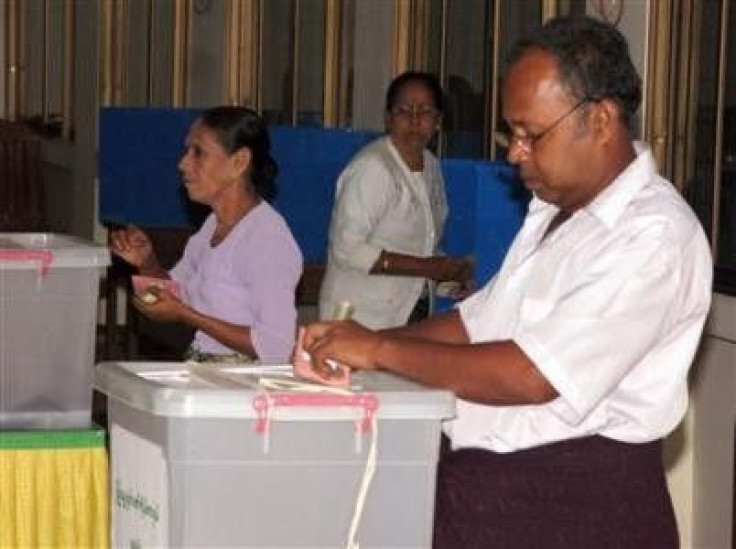Fraud and low voter turnout cloud Myanmar polls

Low voter turnout and allegations of fraud marred the polls in Myanmar. Counting is currently under way as polling booths closed in the late hours of Sunday. Though official figures are yet to be released, media reports suggest that not many people were enthusiastic about the elections. This is for the first time in 20 years that the Burmese people have been allowed to vote.
Myanmar voted for representatives in Pyithu Hluttaw, the upper house and Amyotha Hluttaw, the lower house in the parliament. A total of 1,158 seats have been contested and it is almost certain that the ruling military junta's political arm, the Union Solidarity and Development Party, would emerge as the winner. The National Unity Party, which comprises candidates who are primarily retired generals and ex-army officials, is also in support of the Junta.
The two parties are reportedly fielding more than 2,100 of the 3,000 candidates among themselves. Close to 250 of the total seats remain either uncontested or met with little opposition.
The largest opposition party, the National Democratic Force (NDF), believed to be a splinter group of Aung San Suu Kyi's National League for Democracy (NLD), is fielding only 160 candidates. Myanmar is reported to have 29 million qualified voters out of a nearly 60-million population.
Meanwhile, tight security arrangements were made at the polling stations and a ban on foreign reporters and independent election monitors from outside the country, was in place.
For the 10 hours of voting, police stood on almost every street corner, and the major booths, in the centre of the city, were ringed by barriers of barbed wire, and guarded by officers in body armor carrying assault rifles. Even the smallest suburban polling station had a contingent of police, a report in the Guardian said.
The report also maintained that queues were not to be found at any polling stations.
Reuters also quoted a polling station official in Yangon as saying, We're falling asleep. Ward officials are still urging the people to vote.
NLD, which won the 1990 vote, called on supporters to boycott the elections alleging fraud by the Junta. The now banned outfit has alleged that the latest election would establish the military rule and legally guarantee a share of seats to the Junta. The 1990 elections gifted the NLD with a landslide victory, which was however, ignored by the Junta.
The interim government earlier had warned that any calls of boycotting the elections would be treated seriously with a prison sentence.
The polls were also described as a sham by many western governments. U.S. president Barack Obama stated that the elections were neither free nor fair. British Foreign Secretary William Hague hit out at the junta and maintained that the vote was flawed.
Holding flawed elections does not represent progress. For the people of Burma (Myanmar), it will mean the return to power of a brutal regime that has pillaged the nation's resources and overseen widespread human rights abuses, including arbitrary detentions, enforced disappearances, rape and torture, he said in a statement.
Observers maintain that the polls, despite trying to create a democratic framework, might not help in bringing an end to Western sanctions against Myanmar. Yet, due to its strategic location between India and China and abundant supplies of natural gas, the country could no longer face isolation.
© Copyright IBTimes 2024. All rights reserved.











